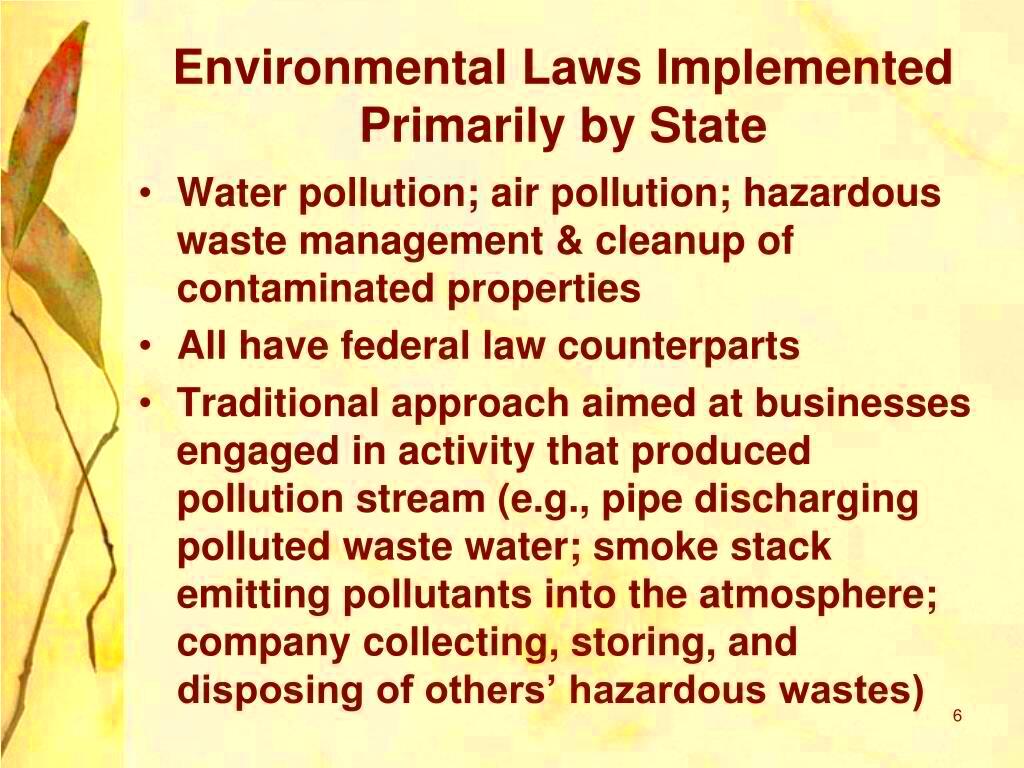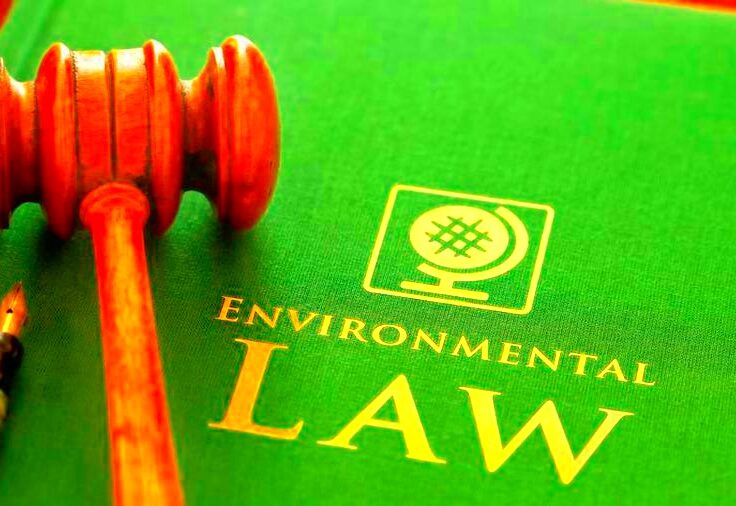Washington State Environmental Laws: What You Need to Know
Washington State has a robust set of environmental laws aimed at protecting the natural resources and public health of its residents. These laws address various issues, including air and water quality, waste management, and wildlife conservation. By understanding these regulations, residents and businesses can contribute to a sustainable environment while complying with legal standards.
Key Regulations Governing Environmental Protection

Several key regulations shape the environmental landscape in Washington State. Here are some of the most important:
- Washington State Environmental Policy Act (SEPA): This act requires government agencies to assess the environmental impacts of their proposals and consider alternatives.
- Clean Water Act: Regulates discharges of pollutants into waters and sets quality standards for surface waters.
- Clean Air Act: Establishes air quality standards to protect public health and the environment from harmful air pollutants.
- Hazardous Waste Regulations: Controls the management of hazardous waste to prevent contamination and ensure safe disposal.
- Growth Management Act (GMA): Encourages sustainable urban development and land use planning to protect the environment.
These regulations work together to create a framework that promotes environmental sustainability and public safety.
Impact of Environmental Laws on Businesses
Environmental laws have a significant impact on businesses operating in Washington State. Here’s how:
- Compliance Costs: Businesses must invest in compliance with environmental regulations, which can include hiring experts, conducting assessments, and implementing waste management systems.
- Operational Changes: Some companies may need to modify their operations to meet environmental standards, which can lead to increased efficiency or innovation.
- Reputation and Branding: Companies that prioritize environmental responsibility often enhance their public image and attract eco-conscious consumers.
- Legal Consequences: Non-compliance can result in hefty fines, lawsuits, and damage to a company’s reputation.
While these laws may impose challenges, they also provide opportunities for businesses to grow sustainably and contribute positively to their communities.
Water Quality and Usage Regulations
In Washington State, water is a precious resource, and protecting its quality is vital for public health and the environment. The state has established several regulations to ensure that water bodies remain clean and safe for everyone. These regulations aim to control pollution and promote responsible usage.
Key regulations related to water quality include:
- Water Quality Standards: The state sets standards for various water bodies to maintain their health. These standards are designed to protect fish, wildlife, and human health.
- National Pollutant Discharge Elimination System (NPDES): This system requires permits for discharging pollutants into waters, ensuring that businesses and municipalities adhere to strict guidelines.
- Water Rights Laws: Washington’s water rights framework manages the allocation and usage of water among users, balancing agricultural, industrial, and residential needs.
Residents and businesses can contribute to water quality by adopting practices like:
- Properly disposing of chemicals and waste.
- Using water-efficient appliances.
- Participating in community clean-up events.
By being mindful of water usage and quality, everyone can play a part in preserving this vital resource.
Air Quality Standards in Washington State
Air quality is crucial for health and environmental sustainability. In Washington State, air quality standards are implemented to minimize pollution and protect residents from harmful contaminants. The state follows guidelines set by the Environmental Protection Agency (EPA) and establishes its own standards based on local conditions.
Key components of air quality regulations include:
- State Implementation Plans (SIPs): These plans outline how Washington will meet federal air quality standards.
- Emission Standards: Businesses must comply with specific emission limits to reduce pollutants released into the air.
- Air Quality Monitoring: The state conducts regular monitoring to track pollution levels and identify areas that need attention.
Common air pollutants include:
- Particulate matter (PM)
- Nitrogen oxides (NOx)
- Sulfur dioxide (SO2)
By adhering to air quality standards, businesses and individuals can help ensure cleaner air for future generations.
Waste Management and Recycling Laws
Effective waste management and recycling practices are essential for reducing environmental impact. Washington State has implemented laws to manage waste responsibly and promote recycling, making it easier for residents and businesses to do their part.
Here are some key aspects of waste management and recycling laws:
- Solid Waste Management Act: This act provides a framework for managing solid waste in Washington, requiring local governments to develop comprehensive waste management plans.
- Mandatory Recycling Programs: Many cities in Washington have established mandatory recycling programs to ensure that recyclable materials are properly sorted and processed.
- Extended Producer Responsibility (EPR): Certain laws require manufacturers to take responsibility for the end-of-life disposal of their products, promoting sustainable practices.
Residents can contribute by:
- Separating recyclables from general waste.
- Reducing single-use plastics.
- Participating in local recycling programs.
These laws not only help keep the environment clean but also promote a culture of sustainability in the community.
Wildlife Protection and Conservation Efforts
Washington State is home to a diverse range of wildlife and natural habitats, making it essential to protect these resources. Wildlife protection and conservation efforts aim to preserve ecosystems, safeguard endangered species, and maintain biodiversity. The state implements various laws and initiatives to ensure the health of its wildlife populations.
Key conservation efforts include:
- Endangered Species Act (ESA): This federal law protects species at risk of extinction and their habitats. Washington State works in conjunction with the ESA to protect local species.
- Habitat Conservation Plans: These plans are developed to manage land use while ensuring the protection of specific wildlife habitats. They often involve collaboration between government agencies, landowners, and conservation groups.
- Wildlife Viewing Areas: The state has designated various areas for wildlife viewing, promoting appreciation for nature while supporting conservation efforts.
Community involvement is also crucial for wildlife protection. Here are some ways residents can help:
- Participate in local conservation projects.
- Report illegal activities affecting wildlife.
- Support wildlife organizations and initiatives.
By working together, communities can contribute to the preservation of Washington’s rich biodiversity.
Frequently Asked Questions about Environmental Laws
Understanding environmental laws can be challenging, and many people have questions about their rights and responsibilities. Here are some common FAQs:
- What are environmental laws? Environmental laws are regulations designed to protect the environment and public health by controlling pollution, conserving resources, and managing land use.
- Who enforces environmental laws in Washington? Various state and federal agencies enforce these laws, including the Washington Department of Ecology and the Environmental Protection Agency (EPA).
- What should I do if I see environmental violations? You can report violations to local authorities or the Washington Department of Ecology for investigation.
- Are there penalties for violating environmental laws? Yes, violations can result in fines, legal action, and damage to reputation, which can be costly for businesses and individuals.
- How can I stay informed about environmental regulations? You can subscribe to updates from the Washington Department of Ecology or follow local environmental organizations for the latest news and changes in regulations.
These FAQs help clarify the role of environmental laws and how they affect everyday life.
Conclusion and Final Thoughts
Understanding Washington State’s environmental laws is crucial for everyone, from residents to businesses. These regulations protect natural resources, public health, and wildlife while promoting sustainable practices. By staying informed and compliant, individuals and companies can contribute to a cleaner and healthier environment.
It’s important to remember that every action counts. Whether you’re participating in recycling programs, reporting environmental violations, or supporting conservation efforts, your involvement makes a difference. As we face ongoing environmental challenges, a collective commitment to following these laws will help safeguard our natural heritage for future generations.
In conclusion, Washington State’s environmental laws provide a solid framework for protecting our environment and ensuring a sustainable future. Together, we can work towards a greener, healthier state.


